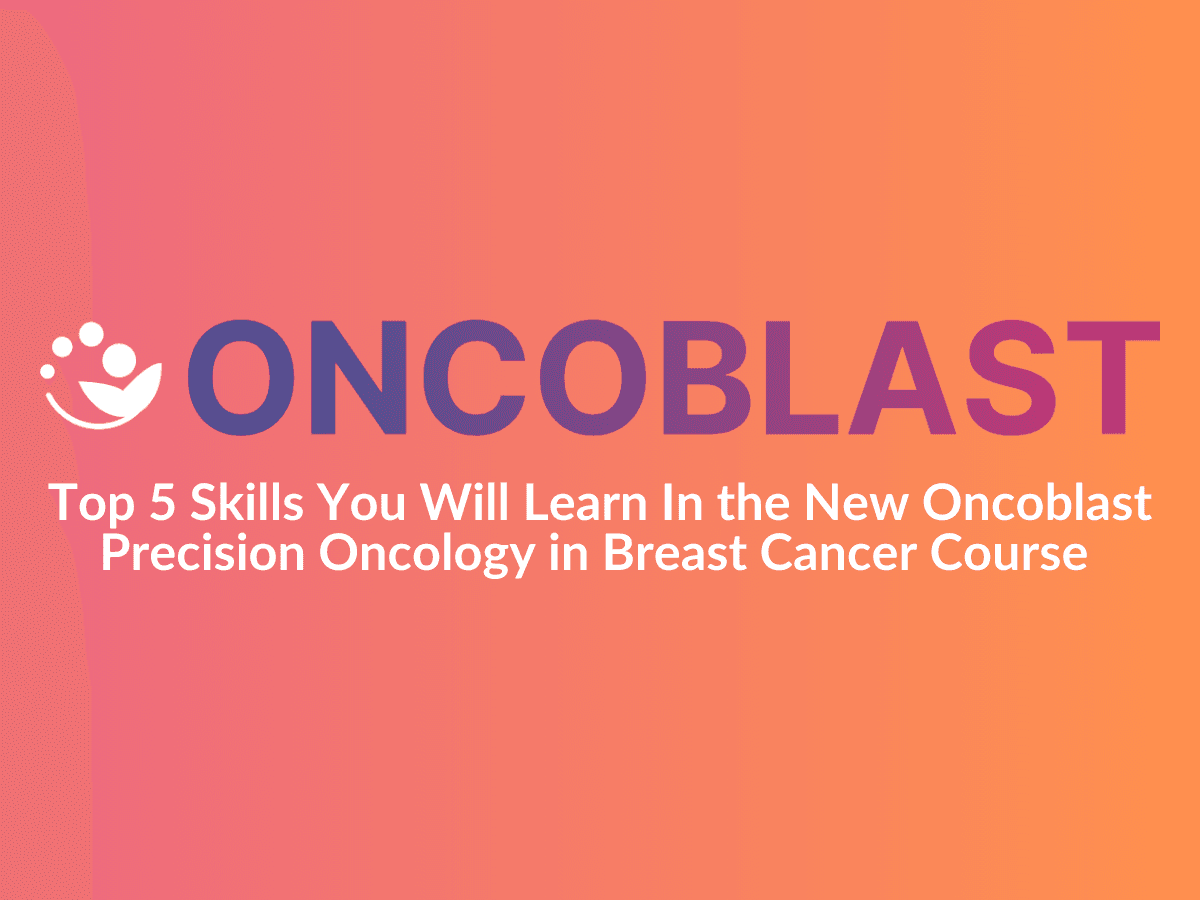Top 5 Skills You Will Learn In the New Oncoblast Precision Oncology in Breast Cancer Course

Author
Binaytara Team
Another course has just been launched on the platform! This new OncoBlast course, titled Targeted Therapy in Breast Cancer: Integrating Precision Oncology Into Real-World Clinical Practice, is designed to equip clinicians with practical strategies to apply precision oncology in breast cancer care. Focusing on biomarker-driven treatment decisions across various clinical scenarios, completing this course will improve your understanding and ability to use the latest advances in precision oncology
This course was created by Dr. James C. Dickerson, a breast medical oncologist at Stanford School of Medicine, for hematologists and oncologists. Other healthcare professionals, including oncology nurse practitioners, oncology pharmacists, oncology physician assistants, oncology fellows and residents, oncology nurses, and researchers involved in cancer care, would also benefit from the course.
With that, here are some knowledge domain areas that will be strengthened after completing this course:
1. Interpreting Molecular and Genomic Data
Interpreting molecular and genomic data is critically important in breast cancer care as it influences diagnosis, prognosis, and treatment decisions. It allows for personalized treatment strategies by identifying specific genetic alterations that can predict breast tumors' behavior and response to therapy. This precision oncology course addresses this need by including board exam–style questions that challenge participants to determine treatment plans or predict recurrence risk based on genomic testing results.
2. Selecting Targeted Therapies
Targeted therapy plays a crucial role in breast cancer care, particularly for tumors that are human epidermal growth factor receptor 2 (HER2) positive, hormone receptor (HR) positive, or estrogen receptor (ER) positive, as well as for those with abnormally functioning driver oncogenes such as cyclin-dependent kinase 4/6 (CDK4/6) or mechanistic target of rapamycin (mTOR)
In this free oncology continuing medical education (CME) course, healthcare practitioners will learn how to select the most effective targeted treatments based on specific tumor subtypes and individual patient characteristics. The course questions are designed to reinforce knowledge on matching each targeted therapy to its corresponding molecular target.
3. Applying Clinical Trial Evidence
On ClinicalTrials.gov, there are over 15,000 clinical trials related to breast cancer. Keeping up with what is new, relevant, and truly beneficial for patient care can be a Herculean task. As such, staying informed about ongoing clinical trial findings can be life-saving for patients with breast cancer
This precision oncology continuing medical education (CME) course integrates the latest trial results into personalized treatment planning for breast cancer. For example, one question references the standard of care for triple negative breast cancer established by the KEYNOTE-522 trial while also assessing knowledge of an ongoing trial that has not yet reached a conclusion. These types of questions help healthcare professionals stay ahead of evolving trends in breast cancer care.
4. Personalizing Treatment Strategies
Precision oncology is essential in breast cancer care because it enables tailored treatment strategies based on the individual characteristics of a patient’s tumor. This approach leads to more effective and personalized therapies, fewer side effects, and improved outcomes. It recognizes the diversity within breast cancer, moving beyond a one-size-fits-all approach to treatment
In this course, case-based questions focus on customizing breast cancer therapies to match the unique profile of each patient. These questions guide healthcare professionals through a patient’s tumor biology, including whether they have received specific treatments in the past, and then assess what treatment recommendations would be most appropriate. This method is an effective way to deepen understanding of the nuances of precision medicine in breast cancer care and to optimize patient outcomes.
5. Integrating Precision Oncology into Practice
From early screening to advanced treatment, precision medicine touches every stage of breast cancer care. But while research is moving fast, putting those breakthroughs into everyday practice can be a challenge
That is where this CME course comes in. Every question is designed with one goal in mind: helping you bridge the gap between cutting-edge science and real-world patient care. You will work through case-based studies, explore clinical trial findings, and interpret lab and imaging results, all in a way that is practical and immediately applicable.
By the end of this, you will not only understand precision oncology in breast cancer care, but you will also be ready to put it to use for your patients.
To access this course, download Oncoblast now from the App Store or Google Play and start tackling real-time, evidence-based clinical quizzes built for busy oncologists. You can earn free CME credits and MOC points anytime, anywhere, with courses right in the palm of your hand.